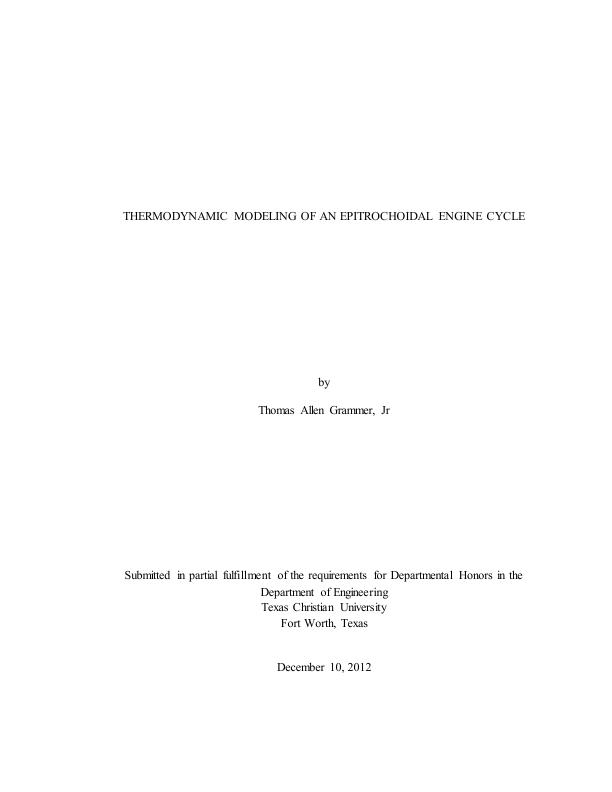Thermodynamic Modeling of an Epitrochoidal Engine CycleShow full item record
| Title | Thermodynamic Modeling of an Epitrochoidal Engine Cycle |
|---|---|
| Author | Grammer, Thomas Allen, Jr. |
| Date | 2012 |
| Abstract | A thermodynamic performance model has been developed for a new four-stroke engine design in which the crank shaft path is non-circular (epitrochoidal). First, a mathematical description of the piston path was defined, identifying the piston path and cylinder volume as functions of engine geometry and crankshaft angle. The modeling approach was also used to develop a standard circular path performance as a comparison. The result was two discrete models, varying only in piston path. Fundamental effects included in both models were valve and spark timing, heat transfer to and from the engine block, volumetric efficiency, and spark ignition combustion timing. In addition to these considerations, frictional losses were measured experimentally on a standard spark ignition engine and an also an epitrochoidal prototype engine using the same cylinder head. The frictional losses were then included in the model. Predicted performance results were used in support of experimental testing of the standard and prototype epitrochoidal engines. These comparative thermodynamic models have been used to explain the changes in performance caused by an epitrochoidal crankshaft design. This report will include the development of the mathematical model for piston movement, comparisons of epitrochoidal and standard path cycle pressures and temperatures, as well as predicted and measured power outputs for both engines. |
| Link | https://repository.tcu.edu/handle/116099117/7368 |
| Department | Engineering |
| Advisor | Bittle, Robert |
| Additional Date(s) | 2012-12-10 |
Files in this item
This item appears in the following Collection(s)
- Undergraduate Honors Papers [1362]
© TCU Library 2015 | Contact Special Collections |
HTML Sitemap



